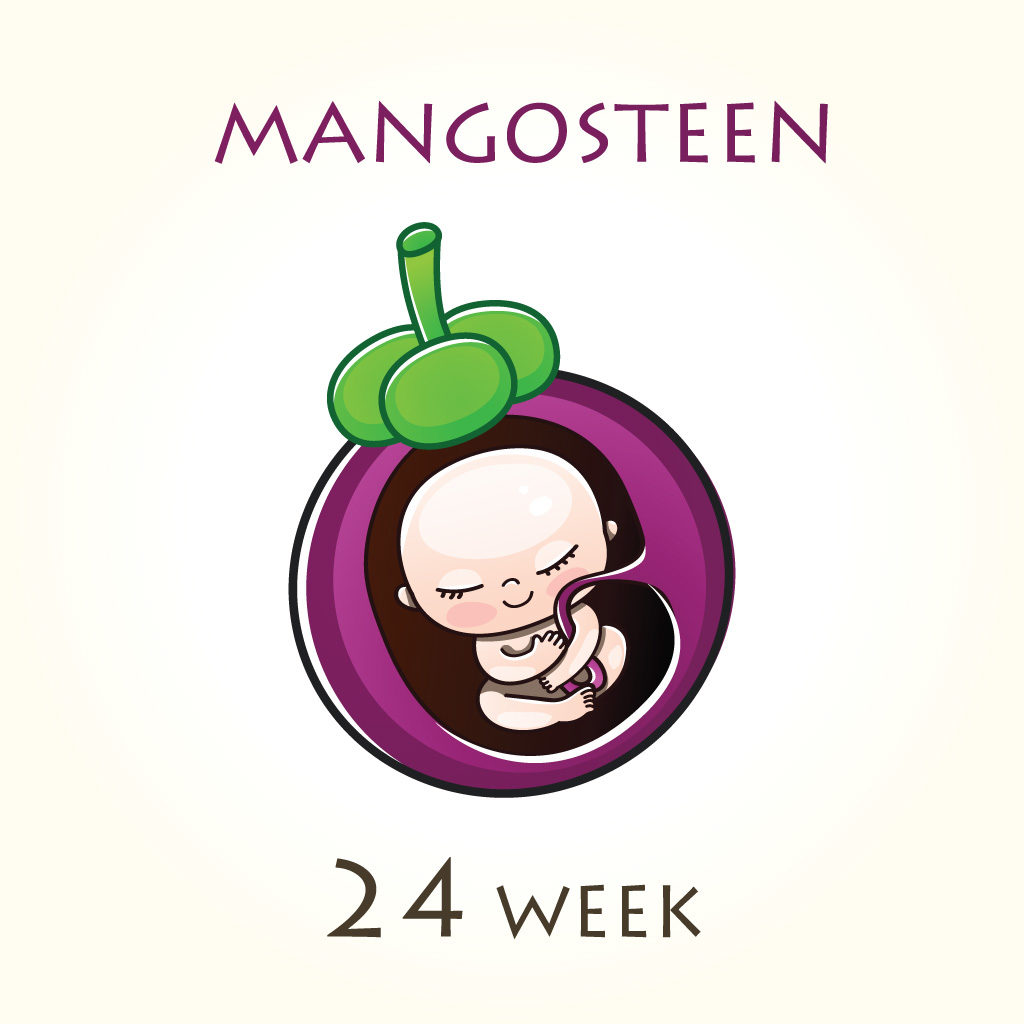Twenty-Four Week Visit
Body Changes
You will continue to gain about 3⁄4 pounds a week now, or 3 to 4 pounds a month. Your baby will begin to move a lot and you will notice patterns of quiet and activity. Constipation may become more troublesome now and may continue through the end of the pregnancy.
Fetal Growth
Your baby is approximately 12 inches long and weighs about 1 to 1 1⁄2 pounds. Movements are easier for you to feel now. Your baby’s skin is covered by a white coating called vernix that protects its skin as it moves in the amniotic fluid.

Special Instructions for this Month
You will undergo routine screening for gestational (pregnancy induced) diabetes between 24 and 28 weeks. Gestational diabetes is rarely associated with symptoms. Therefore, we screen all of our patients.
- Before you leave, be sure you have a bottle of glucola. Your hemoglobin will be drawn at the same time as your diabetes test to see if you are anemic.
- One-Hour Glucose Screen. Eat a well-balanced meal one hour prior to drinking the glucola. Drink the entire bottle over five minutes and note the time you finish. We will draw blood one hour after finishing the drink. Chilling the glucola makes it more pleasant. Do not eat, drink or chew gum between the time you drink the glucola and you have your blood drawn. Arrive for your visit 10-15 minutes early so that your blood work can be drawn before you see your doctor.
Monitor for Signs of Premature Labor/Birth
A baby that is born between 20 and 36 weeks is called pre-term. Prematurity can be serious. Some premature labors can be prevented with patient education.
Risk Factors:
- Previous pre-term deliveries
- Children of DES-exposed mothers (DES was a hormone given in the 1940s-1960s to prevent miscarriage)
- Multiple gestations (twins or triplets)
- Abnormally shaped uterus, large fibroids, uterine bleeding
- Incompetent cervix
- Severe kidney or urinary tract infections
Symptoms of Premature Labor:
- If you suspect you are having premature contractions, drink fluids and lie on your side. If the contractions do not subside, please call your physician/midwife.
- Premature uterine contractions are different from Braxton Hicks, the “normal” contractions that prepare the uterus for labor. If you are less than 36 weeks and have six or more regular contractions in an hour, please call us.
- A gush or trickle of fluid from the vagina may signal premature rupture of membranes (PROM). Sometimes as your baby gets larger, a sudden kick to the bladder can trigger the involuntary release of urine. If you have unexplained wetness, please call us.
- Worsening back pain and pelvic pressure.
- A feeling that something is not right.
If you are having any of these symptoms, please call your physician/midwife.
